- John Goodman
- Larry Kotlikoff
- Jane Shaw Stroup
- Thomas Saving
- Devon Herrick
- Linda Gorman
- Pete Du Pont
- All Posts

What Should Be Done with Obamacare?
No objective observer can think that Obamacare is working the way we were promised it would. It is time for bipartisan reform. John Goodman proposes reforms that would turn the (Obamacare) exchanges into functional markets.

Fact Checking Claims About Taxes
Here are four surprising facts: (1) the subject on which there is the most disinformation is “taxes”; (2) almost all the disinformation comes from the left; (3) it is spread to the general public by the mainstream media; and (4) it is almost never fact-checked. More.

11 Billion Prices
In 2011, Tom Saving and John Goodman pointed out in Health Affairs that Medicare was setting 6 billion prices on any given day. Writing at Forbes, Goodman says that today that number has almost doubled — to 11 billion. And the way Medicare pays, is the way employers and insurance companies also pay. Of all the things that are bad about our health care system, this probably should rank near the top. Yet it rarely gets the attention it deserves. See: What’s Wrong with the Way We Pay Doctors?

What The Left Is Getting Wrong About the GOP’s Health Ideas
Yet it is the critics who don’t understand how Obamacare is working and how it needs to be reformed. What Trump and Vance are talking about doesn’t mean we have to return to the (pre-Obamacare) bad old days. It means we can look forward to a much better future. More

Why We Are Not Getting All the Medical Care We Need
Even though the United States has the most expensive health care system in the world, we have fewer doctors per capita than most other developed countries, and they are seeing patients less often.. The average wait to see a new doctor in this country is 3½ weeks. At the worst-performing hospitals, one in ten visitors to the emergency room leave without ever receiving medical attention – apparently because they get tired of waiting. Solutions: Let nurses practice to the top of their training and open new avenues for foreign-trained doctors and medical school graduates without residencies. More.

The Greed Theory of Inflation
The common perception among commentators and pundits was that the Democratic National Convention was devoid of any focus on issues. There was a lot of joy. But very little substance. Except for one rather remarkable exception. As the Wall Street Journal put it, “the delegates united in blaming corporate greed for high prices.” As Washington Post columnist Catherine Rampell wrote, “Voters want to blame someone for high grocery bills, and the presidential candidates have apparently decided the choices are either the Biden administration or corporate greed. Harris has chosen the latter.” There is just one problem. There is no such thing as an economic theory of inflation – including high grocery prices — that is based on greed. More.

Why Health Policy Problems Rarely Get Solved, Part II
People with costly medical problems who lack the ability to pay for their medical care and also lack health insurance pose a social problem. The American way of dealing with that problem is to force the private sector to bear the full cost of solving it. In response, employers have adopted health plans that are attractive to the healthy and unattractive to the sick. More.

How to Fix the Social Security Benefits Tax
John Goodman and Steve Moore say that Trump’s idea of abolishing the SS benefits tax is too expensive. But it is probably the worst tax on the books. They show how to get rid of its worst features without a big loss of revenue for the government. More.

What Should Be Done with Obamacare?
No objective observer can think that Obamacare is working the way we were promised it would. It is time for bipartisan reform. John Goodman proposes reforms that would turn the (Obamacare) exchanges into functional markets.

Fact Checking Claims About Taxes
Here are four surprising facts: (1) the subject on which there is the most disinformation is “taxes”; (2) almost all the disinformation comes from the left; (3) it is spread to the general public by the mainstream media; and (4) it is almost never fact-checked. More.

What Should Be Done with Obamacare?
No objective observer can think that Obamacare is working the way we were promised it would. It is time for bipartisan reform. John Goodman proposes reforms that would turn the (Obamacare) exchanges into functional markets.

Inflation is a Hidden Tax
A new study lays out the toll of lifelong high inflation on consumers. It estimates that permanent 5% inflation would lower household lifetime spending by 3.62%. Permanent 10% inflation would lower lifetime household spending by 6.82%. Even if inflation ran permanently at the Fed’s 2% target, consumers would still feel a pinch, with a 1.5% reduction in lifetime household spending. More.

Letter to the Commissioner
Congratulations on limiting the amount by which a beneficiaries benefits may be clawed back because of Social Security ‘s own mistakes. More needs to be done however. More.

Social Security Claws Backs $34K from a Disabled Blind Worker for “Overpayments” Going Back 23 Years!
Social Security sends out more than 2 million clawback letters every year. Why so many clawbacks? Simple. Social Security doesn’t have the data it needs to correctly calculate benefits for tens of millions of us. Or it has the information on day 1, but doesn’t process it. Or it inputs the wrong information. Or it mixes up your earnings record with someone else’s. Or it makes the wrong benefit calculations. I’ve seen all of this and more. More
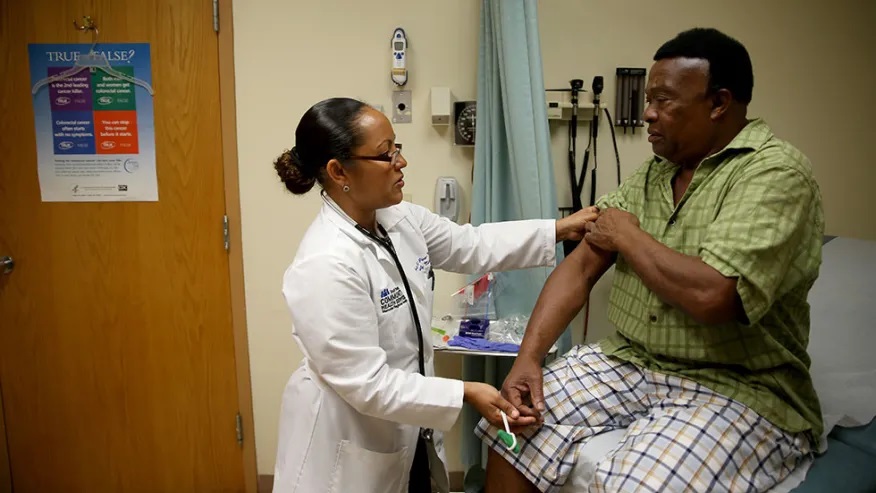
ObamaCare still desperately needs fixing
The American Rescue Plan injects new life into ObamaCare with more generous subsidies, expanded eligibility and premium limits that make insurance more affordable. Unfortunately, the stimulus proposal just passed by Congress does nothing to correct the most serious...

The Government’s New Tax Break for Retirees is Less Than Meets the Eye
QLACs — Qualified Longevity Annuity Contracts promise to be “A Retirement Tax Break That Ends the Fear of Outliving Your 401(k).” But while buying a QLAC lowers the person’s exposure to one major risk (living too long), it raises exposure to another risk: inflation. More
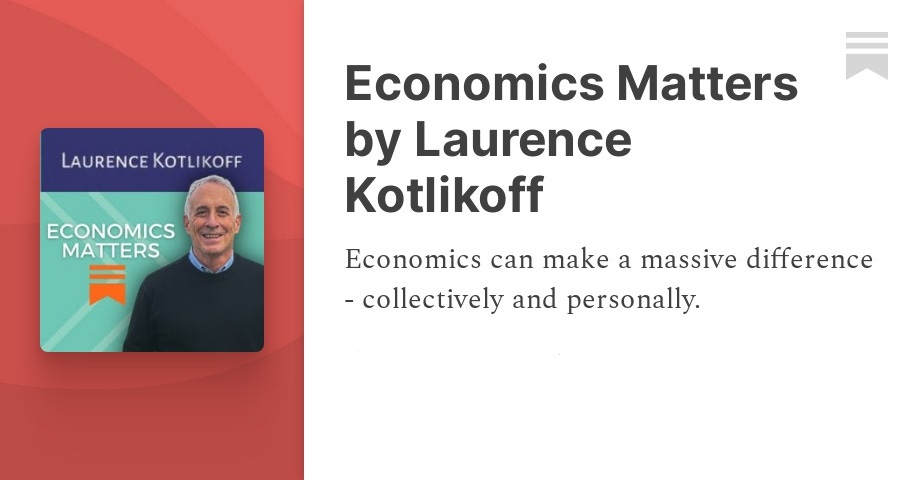
What the Debt Deal Ignored
A month ago, Social Security’s Trustees published their annual report. Table VIF1, buried deep in the Appendix, where no one looks, is the statement that Social Security’s unfunded liability is $66 trillion. This measure of Social Security’s red ink is not just gargantuan on its own. It’s $13 trillion larger than it was just three years ago. More

Social Security Sues invalid for Money He Received 21 Years Ago, At Age 11
Roy Farmer of Grand Rapids Michigan has Cerebral Palsy. He’s 32. In 2019, out of the blue, he received a claw back letter from Social Security demanding he repay $4,902 that his (now deceased) mother received back when he was 11. Roy has spent over three years appealing this judgement. He’s been denied twice. More from Kotlikoff Forbes editorial.
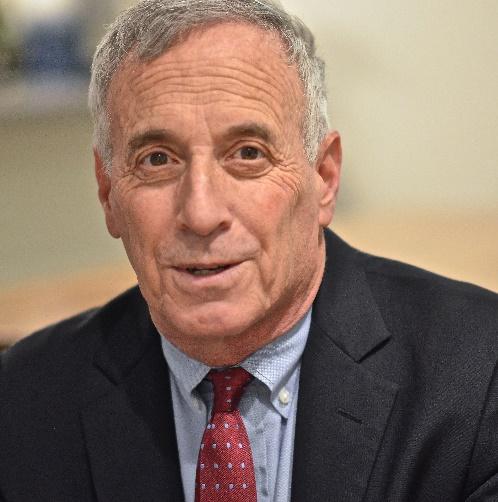
Our Fiscal System Needs Reform
Over half of working-age Americans face lifetime marginal tax rates (including direct taxes and loss of entitlement benefits) above 43 percent. One in ten in the bottom fifth face tax rates above 70 percent, effectively locking them into poverty. For some would-be-workers, the tax rates exceed 100 percent.
Extremely high LMTRs reflect the complete loss of family benefits, in the current and future years, from programs such as Medicaid – which ends benefits abruptly if one’s income or assets exceed specific thresholds by even one dollar. More.

Inflation is a Hidden Tax
A new study lays out the toll of lifelong high inflation on consumers. It estimates that permanent 5% inflation would lower household lifetime spending by 3.62%. Permanent 10% inflation would lower lifetime household spending by 6.82%. Even if inflation ran permanently at the Fed’s 2% target, consumers would still feel a pinch, with a 1.5% reduction in lifetime household spending. More.

Letter to the Commissioner
Congratulations on limiting the amount by which a beneficiaries benefits may be clawed back because of Social Security ‘s own mistakes. More needs to be done however. More.

Inflation is a Hidden Tax
A new study lays out the toll of lifelong high inflation on consumers. It estimates that permanent 5% inflation would lower household lifetime spending by 3.62%. Permanent 10% inflation would lower lifetime household spending by 6.82%. Even if inflation ran permanently at the Fed’s 2% target, consumers would still feel a pinch, with a 1.5% reduction in lifetime household spending. More.

Why Did the Europeans Win?
My last post, “Land Grants or Land Grabs,” revealed that most federal land that started land-grant universities had been taken from Indians. I received some constructive pushback. But that feedback reminded me of a question, Why did the Europeans invade the New World in the first place and conquer Native Americans, rather than Native Americans invading Europe and conquering Europeans?

Land Grants or Land Grabs?
You may have seen a statement similar to this one on a university website: “NC State University . . . respectfully acknowledges that the lands within and surrounding present-day Raleigh are the traditional homelands and gathering places of many Indigenous peoples, including eight federally and state-recognized tribes. . . .” Such statements are not purely the result of gracious sentiments. NC State’s acknowledgment and many others were added after a troubling study appeared. It was “Land-Grab Universities,” published in 2020 by High Country News, an environmentally oriented nonprofit newspaper in the West.

Small Gems in State History Lore
If you grew up in the United States, you probably took a course in middle school or junior high about your state’s history. I don’t remember a thing about my class except a frantic late-night scramble to finish my “Missouri Scrapbook,” full of notes, photographs, postcards, mementos, etc. My guess is that you didn’t learn a lot from state history classes, either. Am I wrong?

Wood Wars on the Susquehanna
This is a guest column by Jay Schalin, senior fellow at the James G. Martin Center for Academic Renewal. Born in Pennsylvania, he responded to my request for “state stories.” The uplands of northern Pennsylvania were a wild and wooly place in the early years of our...

History: Has It Ever Been Predictable?
The American public recently watched a surprising event: After months of saying that he would stay in the presidential race, Joe Biden dropped out. What interested me most was the predictions that preceded it.

Riots over the Bible? Yes. In Philadelphia.
When we think of conflicts between Catholics and Protestants, we think of the wars following the Protestant Reformation in Europe in the 1500s and 1600s. The United States, we assume, has followed a policy of free expression of religion, as promised in the First Amendment to the U.S. Constitution. Sad to say, that is not true. I would like to share with you (briefly) the story of the “Philadelphia Riots of 1844.”

Dueling: A Gentleman’s Duty or a Nasty Habit?
A recent scholarly paper perused two newspapers (the New York Times and the Richmond Daily Dispatch) for duels reported between 1861 and 1865. They found 130 duels (over just five years!). Of these 130 duels, they write, “71 involve prominent figures, which we define as politicians, military officers with rank of at least colonel (Army) or captain (Navy), and other well-known private citizens.”[2]
Read the original article (and view the notes) on janetakesonhistory.org

Charlotte Hawkins Brown: Education under Difficulties
The year 1901 was not a promising time for Charlotte Hawkins Brown, a young black woman, to return to her native North Carolina and teach in a mission school. White supremacists had overthrown North Carolina’s Fusionist government in 1900. The new governor was proud of the amendment to the state constitution that had “the deliberate purpose of depriving the negro of the right to vote, and of allowing every white man to retain that right.” Schools were separate and unequal in spite of the 1896 Supreme Court decision that said they could be separate if they were equal.

Why Did the Europeans Win?
My last post, “Land Grants or Land Grabs,” revealed that most federal land that started land-grant universities had been taken from Indians. I received some constructive pushback. But that feedback reminded me of a question, Why did the Europeans invade the New World in the first place and conquer Native Americans, rather than Native Americans invading Europe and conquering Europeans?

Land Grants or Land Grabs?
You may have seen a statement similar to this one on a university website: “NC State University . . . respectfully acknowledges that the lands within and surrounding present-day Raleigh are the traditional homelands and gathering places of many Indigenous peoples, including eight federally and state-recognized tribes. . . .” Such statements are not purely the result of gracious sentiments. NC State’s acknowledgment and many others were added after a troubling study appeared. It was “Land-Grab Universities,” published in 2020 by High Country News, an environmentally oriented nonprofit newspaper in the West.

Why Did the Europeans Win?
My last post, “Land Grants or Land Grabs,” revealed that most federal land that started land-grant universities had been taken from Indians. I received some constructive pushback. But that feedback reminded me of a question, Why did the Europeans invade the New World in the first place and conquer Native Americans, rather than Native Americans invading Europe and conquering Europeans?
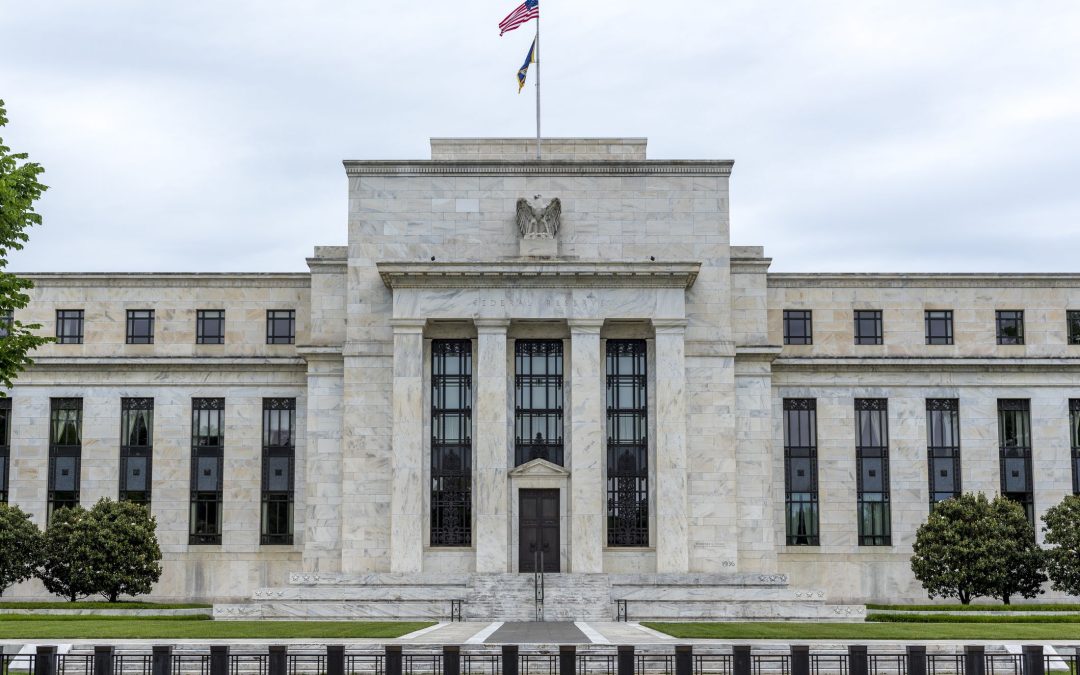
Savings and Gramm: How the Fed is Slowing Monetary Growth
The Federal Reserve is buying Treasury bills and mortgage-backed securities at a rate of $120 billion a month. This is apparently being done to support large borrowing by the federal government. At the same time, the Fed has pulled almost a trillion dollars of liquidity out of the financial system by “reverse-repo borrowing.” This has reduced bank reserves and private sector lending. Not surprisingly, the growth of the M2 money stock fell from around 25% in 2020 to around 10% on an annualized basis in the first six months of 2021.
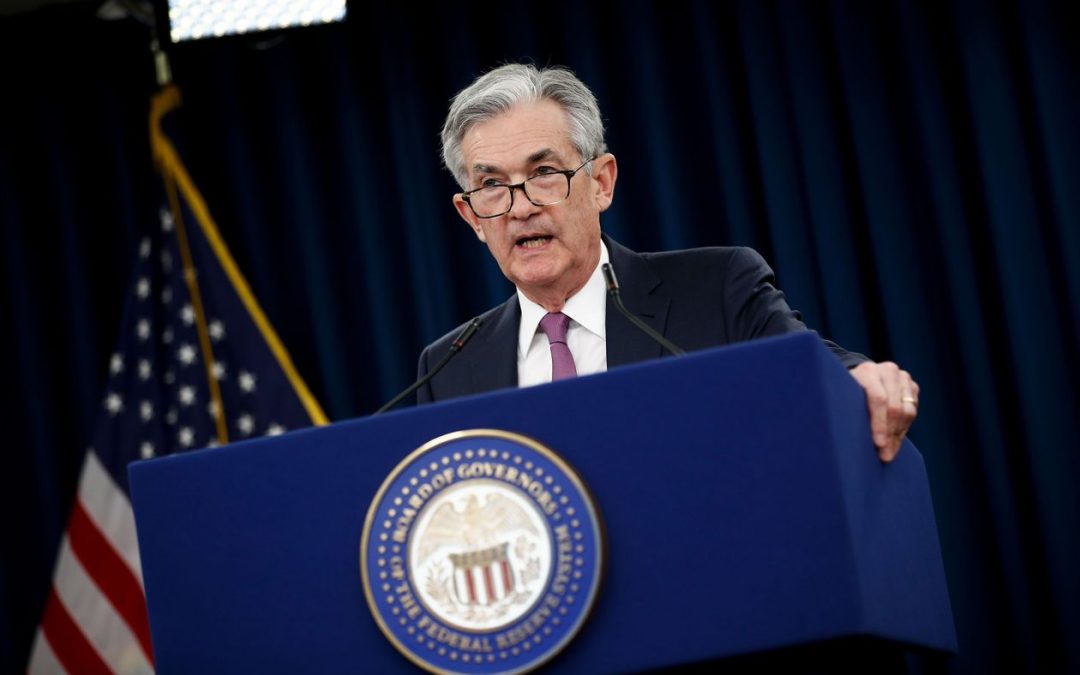
Gramm and Saving in the WSJ: The Fed has lost its ability to control interest rates
Writing in the Wall Street Journal, former Sen. Phil Gramm and Goodman institute Senior Fellow Thomas Saving write “Never in the Fed’s 105-year history has it had less control over market interest rates than it has today…. To expect the Fed to hold interest rates above or below the market rate under these circumstances is not only naive but dangerous.”
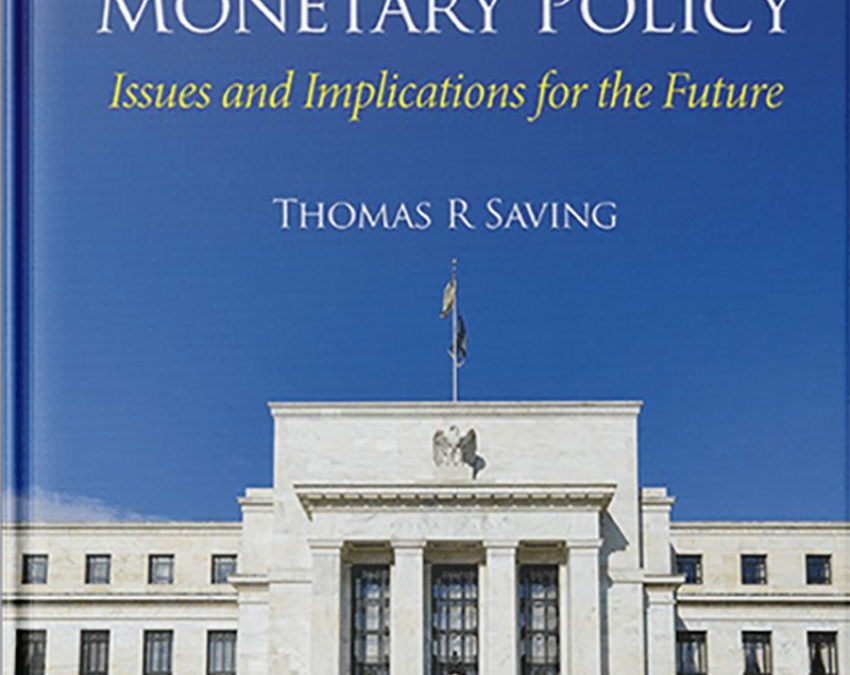
Tom Saving has a new book
Tom Saving has a new book called A Century of Federal Reserve Monetary Policy: Issues and Implications for the Future.

Saving and Gramm in the Wall Street Journal: The Fed’s Obama-Era Hangover
The Federal Reserve System is paying banks not to lend money under an Obama era policy.

Goodman and Saving: Budget Deal’s Trillion Dollar Surprise
The most significant federal entitlement reform in our lifetime was a little noticed provision that Democrats included in the Affordable Care Act. The provision was a cap on Medicare spending, similar to the cap Republicans proposed for Medicaid last summer.

Saving on CNBC: FED is holding 20% of federal debt
The Federal Reserve System is holding 20% of the federal government’s publicly held debt. It also is holding a lot of bank reserves. For every dollar of required reserves, banks have deposited $12 at the FED.

Gramm and Saving in the Wall Street Journal: Fed Task is Precarious
The Fed balance sheet contains 20% of all publicly held federal debt and 34% of the value of all outstanding government-guaranteed mortgage-backed securities. As the economy returns to normal growth, getting rid of those assets risks runaway inflation or a crippled recovery or both.

Saving: Are Republicans Too Stingy with Medicaid?
Before the Senate voted on a “skinny” alternative to Obamacare, it was considering the House version of repeal and replace – called the Better Care Reconciliation Act (BCRA).

Savings and Gramm: How the Fed is Slowing Monetary Growth
The Federal Reserve is buying Treasury bills and mortgage-backed securities at a rate of $120 billion a month. This is apparently being done to support large borrowing by the federal government. At the same time, the Fed has pulled almost a trillion dollars of liquidity out of the financial system by “reverse-repo borrowing.” This has reduced bank reserves and private sector lending. Not surprisingly, the growth of the M2 money stock fell from around 25% in 2020 to around 10% on an annualized basis in the first six months of 2021.

Gramm and Saving in the WSJ: The Fed has lost its ability to control interest rates
Writing in the Wall Street Journal, former Sen. Phil Gramm and Goodman institute Senior Fellow Thomas Saving write “Never in the Fed’s 105-year history has it had less control over market interest rates than it has today…. To expect the Fed to hold interest rates above or below the market rate under these circumstances is not only naive but dangerous.”

Savings and Gramm: How the Fed is Slowing Monetary Growth
The Federal Reserve is buying Treasury bills and mortgage-backed securities at a rate of $120 billion a month. This is apparently being done to support large borrowing by the federal government. At the same time, the Fed has pulled almost a trillion dollars of liquidity out of the financial system by “reverse-repo borrowing.” This has reduced bank reserves and private sector lending. Not surprisingly, the growth of the M2 money stock fell from around 25% in 2020 to around 10% on an annualized basis in the first six months of 2021.

The Perils of Trying to Become a Doctor
This week the National Resident Matching Program (Match) will inform between 45,000 to 50,000 medical graduates whether they have a career in medicine or should try for Plan B. Some of those who failed to match (about 20 percent) will spend the rest of their lives trying to pay down $300,000 in medical school debt without an income capable of servicing that debt.

How a Questionable Drug Turned into a Goldmine at Taxpayers’ Expense
On June 7th the U.S. Food and Drug Administration approved a new drug to treat early-stage Alzheimer’s disease. Is this good news for patients suffering with Alzheimer’s disease? Probably not and certainly not for taxpayers. The clinical trial data found little evidence the drug works. One Phase 3 clinical trial showed a slight slowing in cognitive decline, while the second clinical trial failed to show any improvement.

What’s Behind the Vaccine Slowdown?
What’s behind the slowdown in vaccinations? The consensus among experts is those not yet vaccinated either 1) don’t want the vaccine 2) harbor some doubts about vaccine safety or efficacy, or 3) simply lack the motivation to find vaccine providers and make an appointment. Vaccine hesitancy accounts for about one-third of adults. For example, the Kaiser Family Foundation ran a survey in April that found 15 percent of respondents who had not received the vaccine plan to “wait and see.” Another 6 percent will get vaccinated “only if required,” and 13 percent refuse to get the vaccine.

Correcting Misconceptions of Health Care Reform
One reader posed the question, how does the tax break for employee health insurance harm our health care system? Short answer: over time the practice reduced competition, which weakened cost-control and resulted in health care inflation three times that of consumer inflation. Consider this: once covered by generous health plans, workers cared less about what medical care cost because their health plans paid most of the tab. Employers didn’t care what things cost because they were passing on the costs to workers (indirectly) in lieu of higher cash wages. Third party administrators (TPAs), who manage the benefits for employers, didn’t much care what things cost because they were passing on the costs to employers with a mark-up. The more money spent, the more TPAs earn.

Health Reform: There Is Something for Everyone to Love… and Hate
Why is it controversial to expand the physician supply, creating more competition? Doctors oppose it, just like they oppose expanding the scope of practice for nurse practitioners. Doctors don’t want me to be able to see a nurse practitioner or physician assistant for a wart on my toe unless that NP/PA works for them.
How did doctors get so powerful? In the first half of the 20th Century, the American Medical Association (AMA) waged a largely successful battle to close medical schools that trained competing physicians. …. More than half of American and Canadian medical schools were closed…. Thus, the job of a physician was yanked out of reach of all but the smartest, most disciplined, wealthy elites.
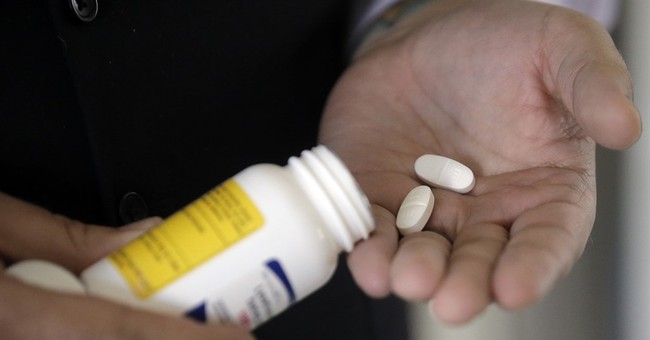
The 60 Percent Solution to Reforming Healthcare
Can we transform the entire health care system by empowering the roughly 60 percent of patients who are in private health plans? That’s the premise of a new book I just read by Todd Furniss (@TFurniss on Twitter). The author ofThe 60% Solution: Rethinking Healthcare, believes there are five major reforms necessary to empower patients and help them get better care at better prices. These include: (1) change governance, (2) modify health savings accounts (HSAs), (3) clear prices, (4) standardize accounting and information technology in the medical industry and (5) emphasize primary care.

Herrick: OBAMACARE RATIONS CARE FOR THE SICK AND OVERCHARGES THE HEALTHY
The health care reform debate that lead to Obamacare was initially about covering the uninsured, but in order to gain the support of ordinary people who already had coverage, proponents had to figure out a way to sway public opinion.

Herrick: States Should Ban These Lab Scams
There is a new health care scam spreading across rural America that could cost you plenty. Large commercial labs like Quest Diagnostics and LabCorp do not have locations in every small town. As a result, many rural hospitals perform lab work for both their inpatients and outpatients in the local community.

The Perils of Trying to Become a Doctor
This week the National Resident Matching Program (Match) will inform between 45,000 to 50,000 medical graduates whether they have a career in medicine or should try for Plan B. Some of those who failed to match (about 20 percent) will spend the rest of their lives trying to pay down $300,000 in medical school debt without an income capable of servicing that debt.

How a Questionable Drug Turned into a Goldmine at Taxpayers’ Expense
On June 7th the U.S. Food and Drug Administration approved a new drug to treat early-stage Alzheimer’s disease. Is this good news for patients suffering with Alzheimer’s disease? Probably not and certainly not for taxpayers. The clinical trial data found little evidence the drug works. One Phase 3 clinical trial showed a slight slowing in cognitive decline, while the second clinical trial failed to show any improvement.

The Perils of Trying to Become a Doctor
This week the National Resident Matching Program (Match) will inform between 45,000 to 50,000 medical graduates whether they have a career in medicine or should try for Plan B. Some of those who failed to match (about 20 percent) will spend the rest of their lives trying to pay down $300,000 in medical school debt without an income capable of servicing that debt.
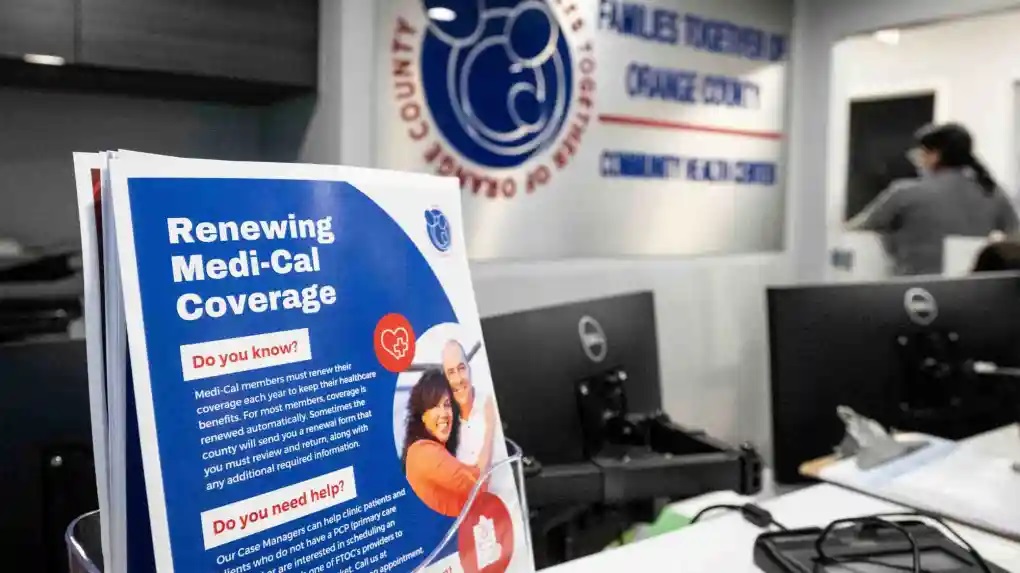
California Dreaming
California legislators want the state to provide free health care to every resident, including undocumented immigrants. Under the act, it would be illegal for any resident to pay a doctor privately for any medical treatment covered by CalCare. John Goodman and Linda Gorman predict higher taxes, less choice, an exodus of doctors and nurses out of the state, rationing by waiting, and something actually worse than Medicaid for all. See our editorial in the Orange County Register.

Leftists in Colorado Seem Poised to Try Again for Single Payer Health Insurance
Last time around, the idea was rejected by almost 79% of the voters. And for good reasons. British Columbia’s single payer system is so mismanaged it pays for cancer patient radiation treatments in Bellingham, Washington. Its hip replacement wait can be almost a year… Because Canadian patients wait twice as long as recommended for MRI scans, those who can afford it pay cash for quick service at US imaging centers in border cities like Buffalo, NY and Bellevue, WA. More.

Against Medicaid Expansion
Expanding Medicaid to the relatively healthy might make sense if it improved general health. But there is little evidence it does. In Oregon, for example, a first-of-its-kind controlled trial tracked individuals who applied for Medicaid through a lottery. After two years, there was no discernible difference in the physical health of the winners and losers. More
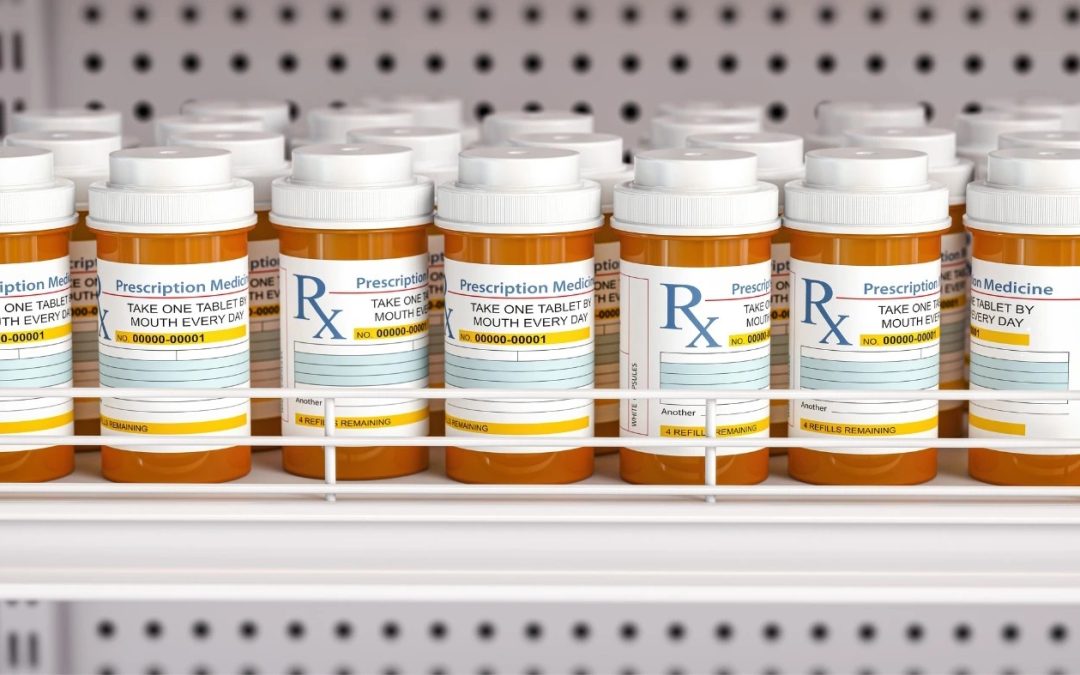
Hidden Traps in the IRA Bill’s Drug Provisions
In the near future, the elderly and the disabled will face a double whammy: higher premiums for Part D drug insurance and higher prices at the pharmacy. This is on top of negotiated prices (and the consequent drop in new drug production) which will kick in later in the decade.
John Goodman and Linda Gorman explain why this will happen in The Hill.

The $3.5T Spending Mistake
Congressional Democrats are proposing to spend an enormous amount of taxpayer dollars on what the New York Times calls a “cradle to the grave” addition to U.S. social welfare. When budgeting shenanigans are ignored, the Committee for a Responsible Federal Budget estimates that the full cost is not the $3.5 trillion that has been widely advertised, but at least $5.0 trillion and possibly as much as $5.5 trillion.
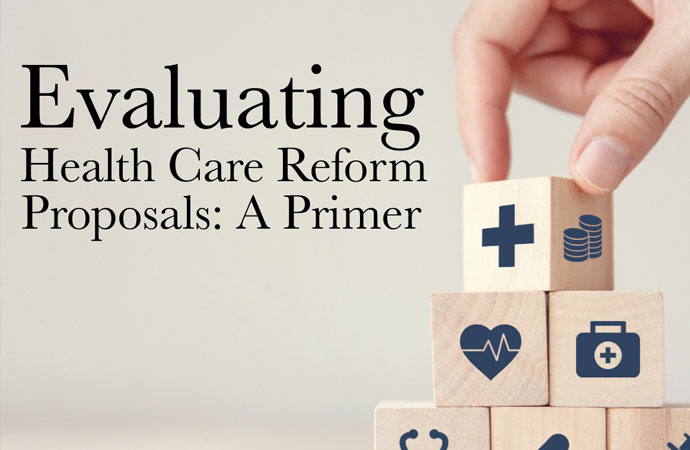
Gorman: US Hospitals are Safer
A frequent criticism of US hospitals is the charge of excessive adverse medical events, sometimes leading to avoidable deaths. How do our hospitals compare to hospitals in national health care systems? Quite well. The percent of patients who experience an adverse event is twice as high in Canada, three times as high in Britain and four times as high in New Zealand.
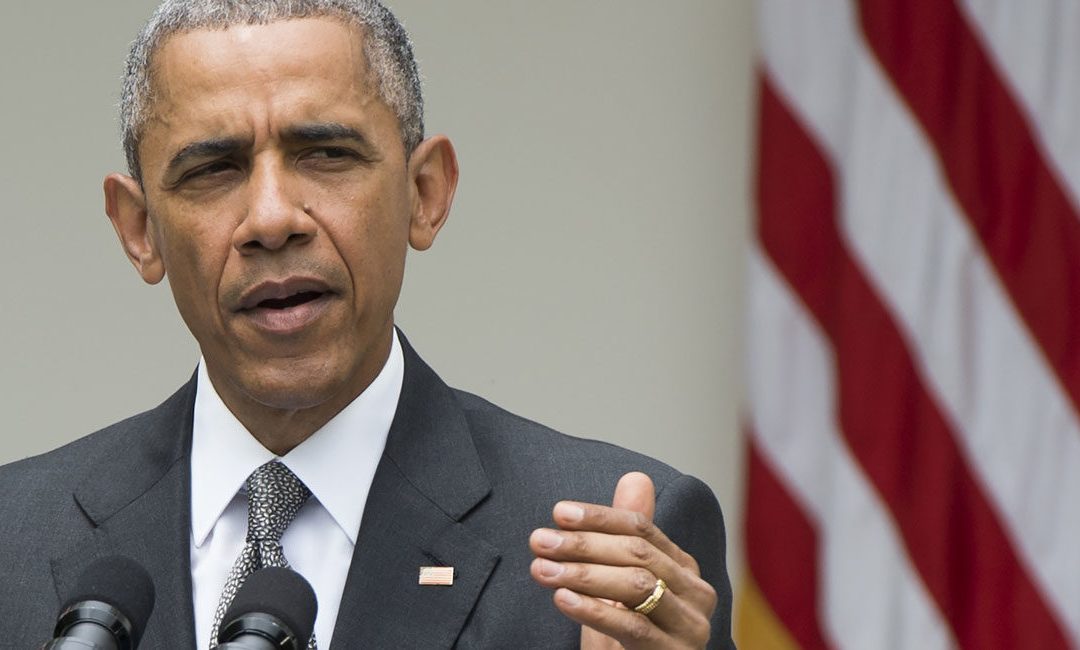
If The Court Strikes Down Obamacare, How Bad Would That Be?
This article was coauthored by Linda Gorman, director of health care at the Independence Institute in Denver, Colorado.

Gorman in The Hill: Trump’s Drug Plan Wrong Rx
The Trump administration wants to use an average of the drug prices paid by other countries to limit what Medicare Part B pays for some drugs. This is a bad idea.

California Dreaming
California legislators want the state to provide free health care to every resident, including undocumented immigrants. Under the act, it would be illegal for any resident to pay a doctor privately for any medical treatment covered by CalCare. John Goodman and Linda Gorman predict higher taxes, less choice, an exodus of doctors and nurses out of the state, rationing by waiting, and something actually worse than Medicaid for all. See our editorial in the Orange County Register.

Leftists in Colorado Seem Poised to Try Again for Single Payer Health Insurance
Last time around, the idea was rejected by almost 79% of the voters. And for good reasons. British Columbia’s single payer system is so mismanaged it pays for cancer patient radiation treatments in Bellingham, Washington. Its hip replacement wait can be almost a year… Because Canadian patients wait twice as long as recommended for MRI scans, those who can afford it pay cash for quick service at US imaging centers in border cities like Buffalo, NY and Bellevue, WA. More.

California Dreaming
California legislators want the state to provide free health care to every resident, including undocumented immigrants. Under the act, it would be illegal for any resident to pay a doctor privately for any medical treatment covered by CalCare. John Goodman and Linda Gorman predict higher taxes, less choice, an exodus of doctors and nurses out of the state, rationing by waiting, and something actually worse than Medicaid for all. See our editorial in the Orange County Register.

Farewell
Some thoughts on the views that have animated this column. By Pete du Pont May 27, 2014 Source: The Wall Street Journal This will be the last of my columns for this publication, so I thought it fitting to note the views that have most influenced these writings....

The Real Inequality Problem
It isn’t that some people are wealthy but that others are struggling. Commentary by Pete du Pont April 28, 2014 Source: The Wall Street Journal Among the too numerous frustrations of the political process is that a lot of smart and talented people spend their time and...

The Left’s “Wars”
The Left’s “Wars” Commentary by Pete du Pont March 28, 2014 Source: The Wall Street Journal The midterm elections are just over seven months away and the left has unleashed its usual rhetoric about the Republican "war on women." It's baseless political pandering of...

Global Warming Heats Up
The public could use an honest debate. Commentary by Pete du Pont February 27, 2014 Source: The Wall Street Journal Global warming is back. Not actual global warming, as the decadelong trend of little to no increase in temperatures continues. But the topic of global...

Our Gravest Peril
ObamaCare? Stagnant economy? Crushing debt? Foreign policy fecklessness may trump them all. Commentary by Pete du Pont January 21, 2014 Source: Wall Street Journal America's most worrisome problem may not be the failed takeover of our healthcare system. It may not be...

The Great Destroyer
ObamaCare wreaks havoc on health care, the economy, American freedom and Obama's presidency. Commentary by Pete du Pont November 25, 2013 Source:The Wall Street Journal Polls show an increasing majority of Americans dislike President Obama's healthcare law and...

Hillary Will Run
How could she not? Commentary by Pete du Pont October 29, 2013 Source: Wall Street Journal Hillary Clinton is going to run for president in 2016. Granted, she is exhibiting even more coyness than most presidential prospects, and yes, the media are filled with those...

The Beltway Stalemate
Democrats and Republicans have never had such a conflict of visions. Commentary by Pete du Pont September 26, 2013 Source: The Wall Street Journal The debate about military action in Syria seems over for now, and Washington is back in campaign mode. We have a...

Farewell
Some thoughts on the views that have animated this column. By Pete du Pont May 27, 2014 Source: The Wall Street Journal This will be the last of my columns for this publication, so I thought it fitting to note the views that have most influenced these writings....

The Real Inequality Problem
It isn’t that some people are wealthy but that others are struggling. Commentary by Pete du Pont April 28, 2014 Source: The Wall Street Journal Among the too numerous frustrations of the political process is that a lot of smart and talented people spend their time and...

Farewell
Some thoughts on the views that have animated this column. By Pete du Pont May 27, 2014 Source: The Wall Street Journal This will be the last of my columns for this publication, so I thought it fitting to note the views that have most influenced these writings....

What Should Be Done with Obamacare?
No objective observer can think that Obamacare is working the way we were promised it would. It is time for bipartisan reform. John Goodman proposes reforms that would turn the (Obamacare) exchanges into functional markets.

Fact Checking Claims About Taxes
Here are four surprising facts: (1) the subject on which there is the most disinformation is “taxes”; (2) almost all the disinformation comes from the left; (3) it is spread to the general public by the mainstream media; and (4) it is almost never fact-checked. More.

Why Did the Europeans Win?
My last post, “Land Grants or Land Grabs,” revealed that most federal land that started land-grant universities had been taken from Indians. I received some constructive pushback. But that feedback reminded me of a question, Why did the Europeans invade the New World in the first place and conquer Native Americans, rather than Native Americans invading Europe and conquering Europeans?

11 Billion Prices
In 2011, Tom Saving and John Goodman pointed out in Health Affairs that Medicare was setting 6 billion prices on any given day. Writing at Forbes, Goodman says that today that number has almost doubled — to 11 billion. And the way Medicare pays, is the way employers and insurance companies also pay. Of all the things that are bad about our health care system, this probably should rank near the top. Yet it rarely gets the attention it deserves. See: What’s Wrong with the Way We Pay Doctors?

What The Left Is Getting Wrong About the GOP’s Health Ideas
Yet it is the critics who don’t understand how Obamacare is working and how it needs to be reformed. What Trump and Vance are talking about doesn’t mean we have to return to the (pre-Obamacare) bad old days. It means we can look forward to a much better future. More

Why We Are Not Getting All the Medical Care We Need
Even though the United States has the most expensive health care system in the world, we have fewer doctors per capita than most other developed countries, and they are seeing patients less often.. The average wait to see a new doctor in this country is 3½ weeks. At the worst-performing hospitals, one in ten visitors to the emergency room leave without ever receiving medical attention – apparently because they get tired of waiting. Solutions: Let nurses practice to the top of their training and open new avenues for foreign-trained doctors and medical school graduates without residencies. More.

The Greed Theory of Inflation
The common perception among commentators and pundits was that the Democratic National Convention was devoid of any focus on issues. There was a lot of joy. But very little substance. Except for one rather remarkable exception. As the Wall Street Journal put it, “the delegates united in blaming corporate greed for high prices.” As Washington Post columnist Catherine Rampell wrote, “Voters want to blame someone for high grocery bills, and the presidential candidates have apparently decided the choices are either the Biden administration or corporate greed. Harris has chosen the latter.” There is just one problem. There is no such thing as an economic theory of inflation – including high grocery prices — that is based on greed. More.

Land Grants or Land Grabs?
You may have seen a statement similar to this one on a university website: “NC State University . . . respectfully acknowledges that the lands within and surrounding present-day Raleigh are the traditional homelands and gathering places of many Indigenous peoples, including eight federally and state-recognized tribes. . . .” Such statements are not purely the result of gracious sentiments. NC State’s acknowledgment and many others were added after a troubling study appeared. It was “Land-Grab Universities,” published in 2020 by High Country News, an environmentally oriented nonprofit newspaper in the West.

What Should Be Done with Obamacare?
No objective observer can think that Obamacare is working the way we were promised it would. It is time for bipartisan reform. John Goodman proposes reforms that would turn the (Obamacare) exchanges into functional markets.

Fact Checking Claims About Taxes
Here are four surprising facts: (1) the subject on which there is the most disinformation is “taxes”; (2) almost all the disinformation comes from the left; (3) it is spread to the general public by the mainstream media; and (4) it is almost never fact-checked. More.

What Should Be Done with Obamacare?
No objective observer can think that Obamacare is working the way we were promised it would. It is time for bipartisan reform. John Goodman proposes reforms that would turn the (Obamacare) exchanges into functional markets.